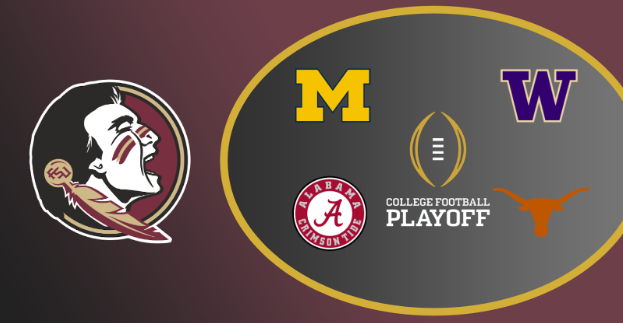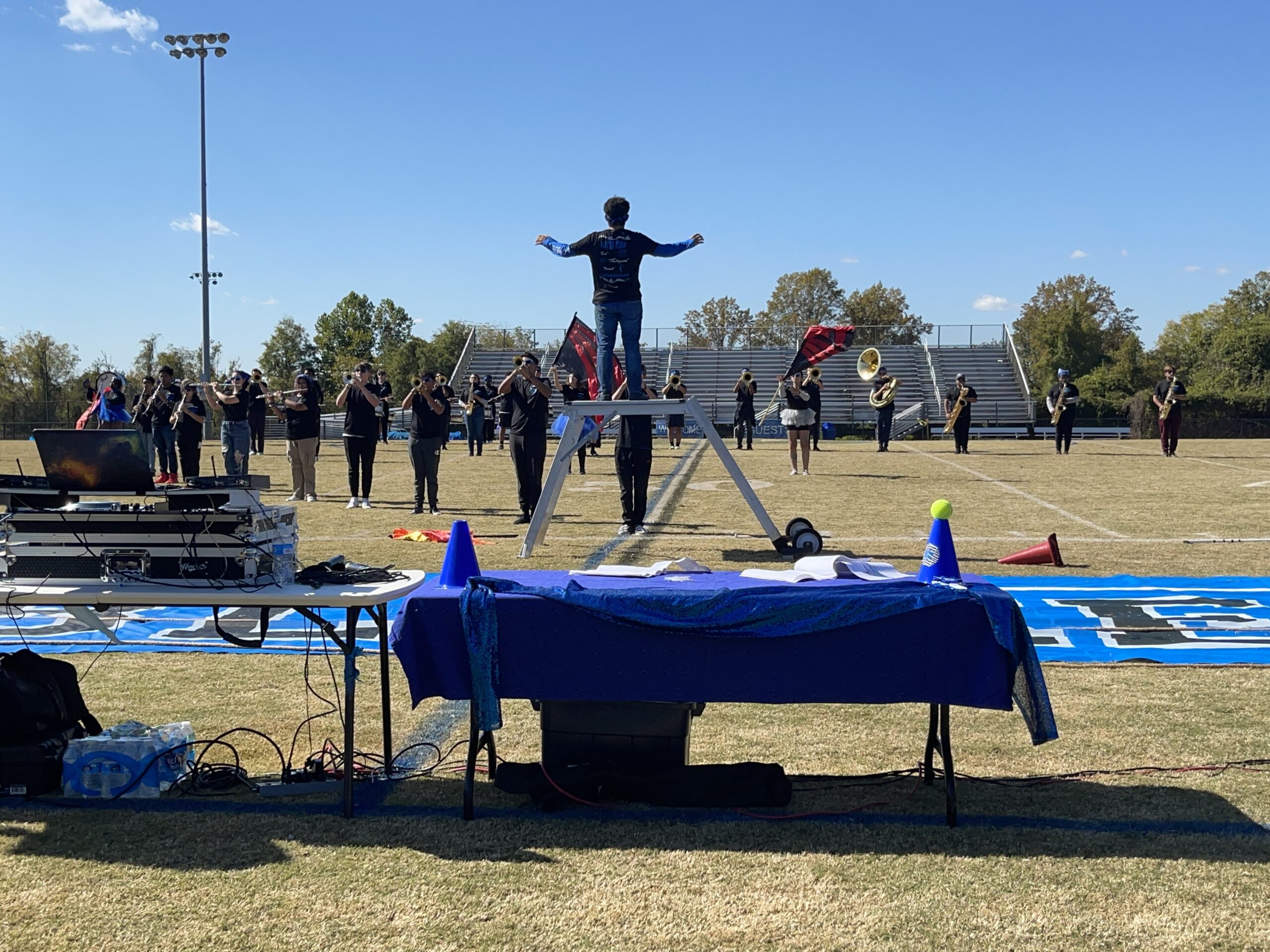Was Florida State Robbed by the College Football Playoff?
The undefeated Florida State Seminoles were shockingly left out of the College Football Playoff when the final rankings were revealed on Sunday, December 3. With a 13-0 record, the Seminoles dropped to the #5 spot due to an injury suffered by star quarterback Jordan Travis, being replaced by one-loss Alabama after they vanquished back-to-back champion Georgia in the SEC title game. This marked the first time in College Football Playoff history that an undefeated Power Five conference champion did not make the Playoff. As a result, the ‘Noles will not get a chance to contend for the national championship, despite being one of four remaining undefeated teams in FBS.
According to the College Football Playoff’s guidelines, their rankings are “based on the members’ evaluation of the teams’ performance on the field, using conference championships won, strength of schedule, head-to-head results, and comparison of results against common opponents to decide among teams that are comparable.” Florida State players, coaches, and fans felt the team was unfairly judged by the loss of one player, and that the CFP Committee overstepped their bounds. Their omission was so egregious that Florida politicians have even launched investigations into the CFP Committee. On the other hand, proponents of the decision point to the potential of a hindered FSU offense and an exciting Michigan-Alabama semifinal matchup.
Argument for FSU
If the Committee is supposed to evaluate a team’s on-field results, it failed at its mission. There is no more objective measure of on-field performance than wins and losses, and Alabama lost a game. Florida State did not. “[The committee] decided they knew better than the results of the games. What is the point of playing games?” asked Mike Norvell, FSU’s head coach. Both Florida State and Alabama share the distinction of being champions of a Power Five championship, and both share similar victories over a common opponent, LSU. The only way to objectively compare teams is with their results on the field, and without a loss on the season, the Seminoles have proven themselves worthy of a CFP berth.
The biggest criticism of Florida State is the loss of QB Jordan Travis, who suffered a leg injury in a blowout win in Week 12. While a valid concern, the Seminoles’ back-to-back wins without Travis should remove any doubt about how they will perform without him. In the final regular season game, backup Tate Rodemaker did enough while the defense dominated, and FSU prevailed over rival University of Florida. Then, after Rodemaker was injured, third-string freshman Brock Glenn stepped in, and Florida State still managed to beat #15 Louisville in the ACC championship. While the offense certainly suffered setbacks in the game, the Noles’ vaunted defense commandeered the team to a win in both tests. These wins “should have ENHANCED our case to get a playoff berth EARNED on the field,” wrote FSU’s Athletic Director in a critical statement after the release of the rankings.
Furthermore, all the arguments for choosing Alabama over Florida State are pure speculation. In defending the Committee’s decision, people often argue that Alabama would beat Florida State in a head-to-head matchup, Bama would have a better chance against #1 Michigan, and the Seminoles would get blown out in the semifinals. But not every predictive measure shows Alabama as the better team: ESPN’s strength of record metric ranks the Seminoles at number three, one spot ahead of Alabama. People also point to the “eye test,” saying that Alabama simply looks more dominant than Florida State. These arguments, though, completely ignore unconvincing wins by ‘Bama over South Florida, Arkansas, and a last-minute, fourth down hail mary to beat Auburn in the Iron Bowl. Unlike FSU, Jalen Milroe was their QB in the latter two of those games, as opposed to winning with a backup under center.
Overall, the Committee should reflect only what actually happens in a season. The CFP is not a crystal ball or a weather forecast, predicting the future of which teams “will” be better. Their job is to rank the teams based on their on-field performance, and by excluding undefeated Florida State, they have failed the players, the coaches, and the fans, and undermined the integrity of the College Football Playoff.
Argument against FSU
College football is different from any other pro or amateur sport in America because of how the playoffs are chosen. The committee made the right decision leaving ACC champion Florida State University out of the four-team CFP. This is because according to the NCAA, the teams that are in the playoffs are “the four best teams” in college football, not the ones who have the best record. Florida State, Alabama, and Texas are three of the teams in question since they all won their respective conference championships, but the ACC (FSU’s Conference) is the weakest and the committee took that into account when making their decision.
The committee also looks into Head-to-Head matchups in which neither Alabama nor Texas played FSU. However, Texas beat Alabama in Week 3 of these matchups. That game played a pivotal role in Florida State not making the game with Alabama just coming off their biggest win of the past two seasons against unbeaten Georgia, which propelled them into the CFP. You can’t have a team in the playoffs without the team that beat them, which means you can’t have Alabama there without Texas.
The committee took the loss of Jordan Travis as the big deciding factor when leaving FSU out. Some believe that a team should not be defined by one player, but in this case, Travis is. Even with Florida State going 3-0 beating an SEC team in Florida and a ranked team in Louisville, they would end up getting crushed by the number 1 seed in Michigan and the committee does not want another blowout like TCU was last year.
Conclusion
Everyone is entitled to their own opinions on what the NCAA should have done in this situation. Thankfully, this will never happen again, with the playoffs moving next year to 12 teams instead of this year’s four. What do you think the committee should have done in this situation?




